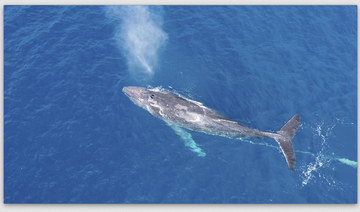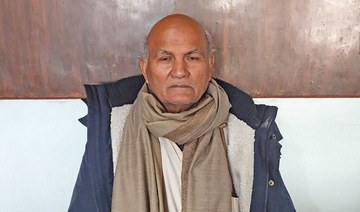AUCKLAND: Adele made a personal and touching tribute to the victims of the London terror attack during her New Zealand concert on Thursday.
According to sources, the singer seemed emotionally shaken up about the event that occurred on London’s Parliament building, which left four people dead and 40 others injured.
“Today there was a terror attack in my home town of London,” she said. “I’m literally on the other side of the world, and I want them to see our lights and to hear us.
“Everyone (I know) is fine, but there are four people that aren’t fine,” she said. “I feel very far away and very strange not being at home. All I want to do today is just be at home and be with my friends and family.”
Adele dedicated her rendition of “Make You Feel My Love” to the victims, delivering a stirring performance. Music lovers at the venue could also see the performance on a huge circular screen.
A ticking sound was the first sign the show was about to begin, before the huge screen lifted up and the star standing center stage said “hello,” Billboard reported.
Adele pays tribute to London attack victims
Adele pays tribute to London attack victims

Myriad people flock to Indian city to swallow live fish with ‘miracle cure’ to asthma

- It is said that the fish, stuffed with a secret herbal treatment, travels down the throat and relieves any phlegm or congestion
- The practice enjoys support despite objections from scientific groups and others who say there is no proof behind it, and even call it unsanitary
HYDERABAD, India: A mother encourages her daughter to fully open her mouth to swallow a live fish holding “the medicine” she believes will help cure her child’s asthma, as scores clamor about, gulping down their own fish and hoping for the best.
Each summer, on a day deemed auspicious by astrological calculations, people suffering from asthma and other respiratory ailments flock to the southern Indian city of Hyderabad to swallow a small live fish with its mouth stuffed with a secret herbal treatment that only one family can craft.
Legend has it that in 1845 a wandering saint presented a secret formula of miracle herbs to Veeranna Goud, a man living in the old city of Hyderabad, and instructed him to give it to asthma patients for free. Since then, Goud’s descendants, known as the Bathini family, have preserved the tradition and kept the herbal formula under wraps, shared only among male descendants.
“My great-great-grandfather, Veeranna Goud, passed this secret formula to his sons and they passed it on to their sons and now we are the fifth generation to keep the tradition,” said Kakarna Alkananda, who helps oversee the distribution, though she is not privy to the formula.
It is said that the fish travels down the throat and relieves any phlegm or congestion.
“My mother has been taking this treatment for seven years now, and it has brought her much relief. She’s breathing easier, and her attacks have become less frequent,” said Aash Mohammed, who traveled for more than 20 hours by train from the Indian capital New Delhi with his family.
The Bathini family has to call the treatment “prasadam” which roughly translates as “an offering” after a local organization that works to dispel superstitious beliefs won a lawsuit forbidding them from describing the treatment as “medicinal.”
Still, the practice enjoys support despite objections from scientific groups and others who say there is no proof behind it, and even call it unsanitary.
People buy their fish from the government fisheries department stall on site. Though the treatment is free, each fish costs 40 rupees or about 50 cents. After collecting the live fish in a plastic bag filled with water, each person gives it to an attendant working with the Bathini family, who squeezes a yellow herbal paste in the fish’s mouth and helps them swallow it.
Thousands have used the “prasadam” this year, according to organizers.
The local government sets up the makeshift structure for the event while overseeing security and sanitation measures.
New research explores how a short trip to space affects the human body

- Research on four space tourists is included in a series of studies on the health effects of space travel, down to the molecular level
DALLAS: Space tourists experience some of the same body changes as astronauts who spend months in orbit, according to new studies published Tuesday.
Those shifts mostly returned to normal once the amateurs returned to Earth, researchers reported.
Research on four space tourists is included in a series of studies on the health effects of space travel, down to the molecular level. The findings paint a clearer picture of how people — who don’t undergo years of astronaut training — adapt to weightlessness and space radiation, the researchers said.
“This will allow us to be better prepared when we’re sending humans into space for whatever reason,” said Allen Liu, a mechanical engineering professor at the University of Michigan who was not involved with the research.

NASA and others have long studied the toll of space travel on astronauts, including yearlong residents of the International Space Station, but there’s been less attention on space tourists. The first tourist visit to the space station was in 2001, and opportunities for private space travel have expanded in recent years.
A three-day chartered flight in 2021 gave researchers the chance to examine how quickly the body reacts and adapts to spaceflight, said Susan Bailey, a radiation expert at Colorado State University who took part in the research.
While in space, the four passengers on the SpaceX flight, dubbed Inspiration4, collected samples of blood, saliva, skin and more. Researchers analyzed the samples and found wide-ranging shifts in cells and changes to the immune system. Most of these shifts stabilized in the months after the four returned home, and the researchers found that the short-term spaceflight didn’t pose significant health risks.
“This is the first time we’ve had a cell-by-cell examination of a crew when they go to space,” said researcher and co-author Chris Mason with Weill Cornell Medicine.
The papers, which were published Tuesday in Nature journals and are now part of a database, include the impact of spaceflight on the skin, kidneys and immune system. The results could help researchers find ways to counteract the negative effects of space travel, said Afshin Beheshti, a researcher with the Blue Marble Space Institute of Science who took part in the work.
Russia races to save entangled humpback whale in the Arctic

- Video shot by a marine biologist shows the whale with some sort of net and rope wrapped tightly around its body near the flippers
MOSCOW: Russian marine specialists are racing to save a humpback whale which has become entangled in a fishing net north of the Arctic circle.
Video shot by a marine biologist shows the whale, who has been named Stanislav, with some sort of net and rope wrapped tightly around its body near the flippers.
After tourists on the Kola Peninsula, in Russia’s far north, spotted the stricken mammal, biologists searched over 120 km (75 miles) of coastline before identifying it, according to Svetlana Radionova, head of Russia’s natural resources watchdog Rosprirodnadzor.
“The whale entangled in the nets has been found alive,” Radionova said on Telegram, adding that specialists would try to get close to it and cut off the net.
Turkish student arrested for using AI to cheat in university exam

ISTANBUL: Turkish authorities have arrested a student for cheating during a university entrance exam by using a makeshift device linked to artificial intelligence software to answer questions.
The student was spotted behaving in a suspicious way during the exam at the weekend and was detained by police, before being formally arrested and sent to jail pending trial.
Another person, who was helping the student, was also detained.
A video released by police in the southwestern province of Isparta showed how the student used a camera disguised as a shirt button linked to artificial intelligence software via a router hidden in the sole of the person’s shoe.
A police officer in the video scans a question to show how the system works, with the AI software generating the correct answer, which is recited through an earpiece.
Rare elephant twins born in dramatic birth in Thailand

AYUTTHAYA: An elephant in Thailand has delivered a rare set of twins in a dramatic birth that left a carer injured after he tried to rescue one of the newborns.
The 36-year-old Asian elephant named Jamjuree gave birth to an 80-kilogramme (176-pound) male at the Ayutthaya Elephant Palace and Royal Kraal north of Bangkok on Friday night.
But when a second, 60-kilogramme female calf emerged 18 minutes later, the mother went into a frenzy and attacked her new arrival.
“We heard somebody shout ‘there is another baby being born!’” said veterinarian Lardthongtare Meepan.
An elephant keeper, also known as a mahout, moved in to prevent the mother from attacking her newborn, and took a blow to his ankle in return.
“The mother attacked the baby because she had never had twins before — it’s very rare,” said Michelle Reedy, the director of the Elephant Stay organization, which allows visiting tourists to ride, feed and bathe elephants at the Royal Kraal center.
“The mahouts who are the carers of the elephants jumped in there trying to get the baby away so that she didn’t kill it,” Reedy told AFP.
Jamjuree has now accepted her calves, who are so small that a special platform has been built to help them reach up to suckle.
They are also being given supplemental pumped milk by syringe, said Lardthongtare.
Twin elephants are rare, forming around only one percent of births, according to research organization Save the Elephants, and male-female twin births are even more unusual.
Mothers often do not have enough milk for both calves and the pair might not have survived in the wild, said Reedy.
“Whether the rest of the herd may have intervened — they may have, but the baby may have been trampled in the process,” she said.
Reedy said many of the 80 elephants at the center were rescued from street begging, a practice that became increasingly common after a logging ban in 1989 that left mahouts working in the industry with their elephants seeking alternative income.
The practice, which was outlawed in 2010, involved the animals performing tricks like playing with footballs or carrying baskets of fruit.
Some elephants at Royal Kraal carry tourists to the nearby ruins and temples of Ayutthaya, the historic former capital of Siam.
Many conservation groups oppose elephant riding, arguing it is stressful for the animals and often involves abusive training.
The center argues the rides allow the animals to socialize and exercise, and promote conservation of the species, which is endangered in Southeast Asia and China.
Only about 8,000-11,000 Asian elephants remain in the wild, according to the WWF.
The animals were once widespread, but deforestation, human encroachment and poaching have decimated their numbers.
The twin calves, whose father is a 29-year-old elephant named Siam, will be named seven days after their birth, in accordance with Thai custom.

















